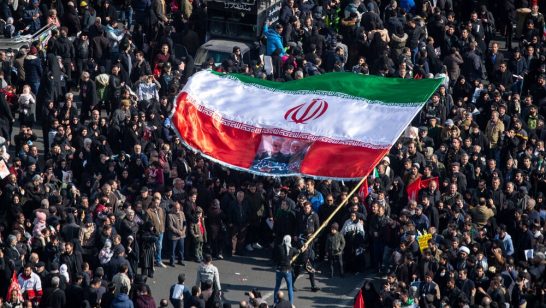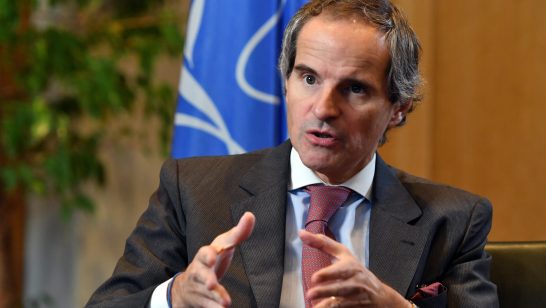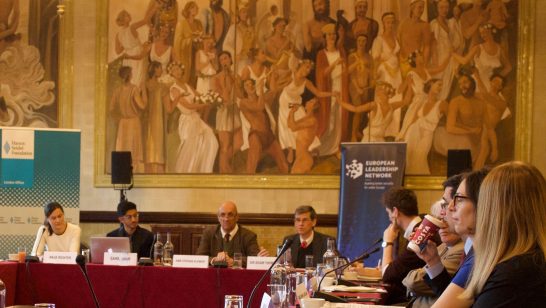
Iran has taken the fifth step in reducing its commitments to limit its nuclear program, as envisioned under the Joint Comprehensive Plan of Action (JCPOA). In short, no JCPOA-based limitations will apply any longer, and Iran will be free to add centrifuges and enrich uranium as it wishes. Surely this is the end of the agreement that the remaining partners, the Europeans, Chinese and the Russians, have worked so hard to preserve after the U.S. exited the deal in 2018? Not so fast. Iranian Deputy Foreign Minister Abbas Araghchi announced this week that the nuclear deal is savable if “the other side shows will”. To confirm its support for the original “win-win” deal, Iran is fully committed to work with the IAEA by allowing nuclear inspectors to stay in the country.
Is the deal still alive or not? Obviously this will depend on the remaining partners, particularly the Europeans, who have not been able to offset the impact of U.S. secondary sanctions. The European Council will discuss the situation this Friday ( 10th January) and a U.S. envoy is in Brussels for consultations, whilst European and Saudi officials are also visiting Washington. The possibility of the “remaining partners acting willfully” is not on the cards. Rather, there is a risk that the JCPOA’s Dispute Resolution Mechanism (DRM) will be initiated. The end result of this mechanism, originally aimed at resolving disputes as opposed to being a punitive measure, will most likely be the final collapse of the deal.
Where will this leave Europe? This will no doubt lead to “Europe’s dangerous irrelevance in Washington and in the Middle East” as put by Judy Dempsey. The EU can forget the desire for a global role and the quest for “strategic autonomy”, stated as goals in its Global Strategy from 2016. Twelve years of coordinating the superpowers in negotiations to ensure that Iran will not acquire nuclear weapons will be lost. So will the ability to get two hostile partners, the U.S. and Iran, to sit at the same table and to agree on a deal. A possible war in the Middle East will be a security risk for Europe, as will the flow of refugees from such a conflict.
The collapse of the JCPOA will also be a blow to nuclear diplomacy. The agreement was the first time negotiations limited a country’s nuclear program and secured its non-nuclear weapons status in the future. Not only may the Iranian hardliners, expected to gain in the parliamentary elections next month, change this; it could also lead to the spread of nuclear weapons in the Middle East. Furthermore, it is unlikely that any state would sign a corresponding agreement, knowing that the agreement may collapse as soon as the next U.S. president is inaugurated.
Important as it is, is there a last-minute rescue mechanism to save the deal? Is there something that could help “shake Europe out of its strategic helplessness” to again quote Judy Dempsey?
In his speech on Wednesday morning, President Trump proposed that the old partners (“we”) negotiate a new deal. The Europeans tried this already in May 2018 without any result before Trump cut the cord. Moreover, the chances of Russia and China joining in on a new effort is minimal. Moreover, it is expected that Iran will choose to respond with provocations whilst under “maximum pressure” because the Iranians refuse to negotiate under such circumstances. This is one of the lessons from the 12 years of European negotiations. Would it be possible for the E3 to convince President Trump to relax some sanctions to create a face-saving space for Iran to negotiate a new deal? This is highly unlikely, as the president in his speech only offered more sanctions, but should be pursued nonetheless.
The second option is beefing up the humanitarian channel, INSTEX, a European transaction channel with Iran to facilitate the purchase of otherwise embargoed foods or medicines. Even if this would be only a symbolic gesture, compared to the negative impact of the oil sanctions on the Iranian economy, it could also possibly create breathing room until the presidential elections in the U.S. are over in November 2020. In spite of many efforts and announcements to the contrary, this channel is not yet managing a meaningful level of trade. In short, it is not yet operational. There are deals waiting to be made but there are still bureaucratic problems to be solved, potentially also on the Iranian side. The clock is ticking for creative thinking.
A third option is a strong political statement together by the E3 with Russia and China, the remaining partners of the deal. This could reaffirm the JCPOA and its critical importance for nuclear non-proliferation by stating, on the highest political level, that the deal does guarantee that Iran will not develop nuclear weapons. This would be a direct response to President Trump’s first claim in his speech this week. While the problem of the “sunset clauses” (the fact that certain limits to the nuclear program will expire) will persist, Iran has committed itself to remaining a non-nuclear state and a party to the Nuclear Non-Proliferation Treaty (NPT) and the IAEA’s Additional Protocol. If states do not agree that this Treaty guarantees that the signatories and ratifying states such as Iran do not proliferate, then the treaty has faults that have to be reformed.
The collapse of the JCPOA would have unpredictable consequences for the health and viability of the nuclear non-proliferation regime. If Iran takes more drastic steps, it would serve to remove many, if not all, remaining barriers to the use of armed force from the United States and willing partners. To militarise non-proliferation is not something Europe, as a promoter of multilateralism and a rule-based order, can or should accept.
The opinions articulated above also do not necessarily reflect the position of the European Leadership Network or any of its members. The ELN’s aim is to encourage debates that will help develop Europe’s capacity to address pressing foreign, defence, and security challenge.



